Farming Life
Farming Life at Lachat
We have a lively farming life here at Lachat Town Farm. Our 3 Nigerian Dwarf goats are settled into their custom made 'Goat Palace' and always happy to greet visitors when they are out on their personal playground! Our 6 resident bunnies are a wonderful addition to the farm and they enjoy time both inside their spacious new bunny hut and outside in their bunny run. The Beeyard provides a wonderful educational experience for young and old alike!
Our gardens currently consist of a Community Garden where Weston residents can rent raised beds by the season and our Giving Garden that provides fresh organic produce throughout the growing season to those with food insecurities. We boast a beautiful Pollinator Garden that spans the perimeter of the Community Garden. Please come visit us and experience our special 'Farming Life' here at Lachat!
Our Goats
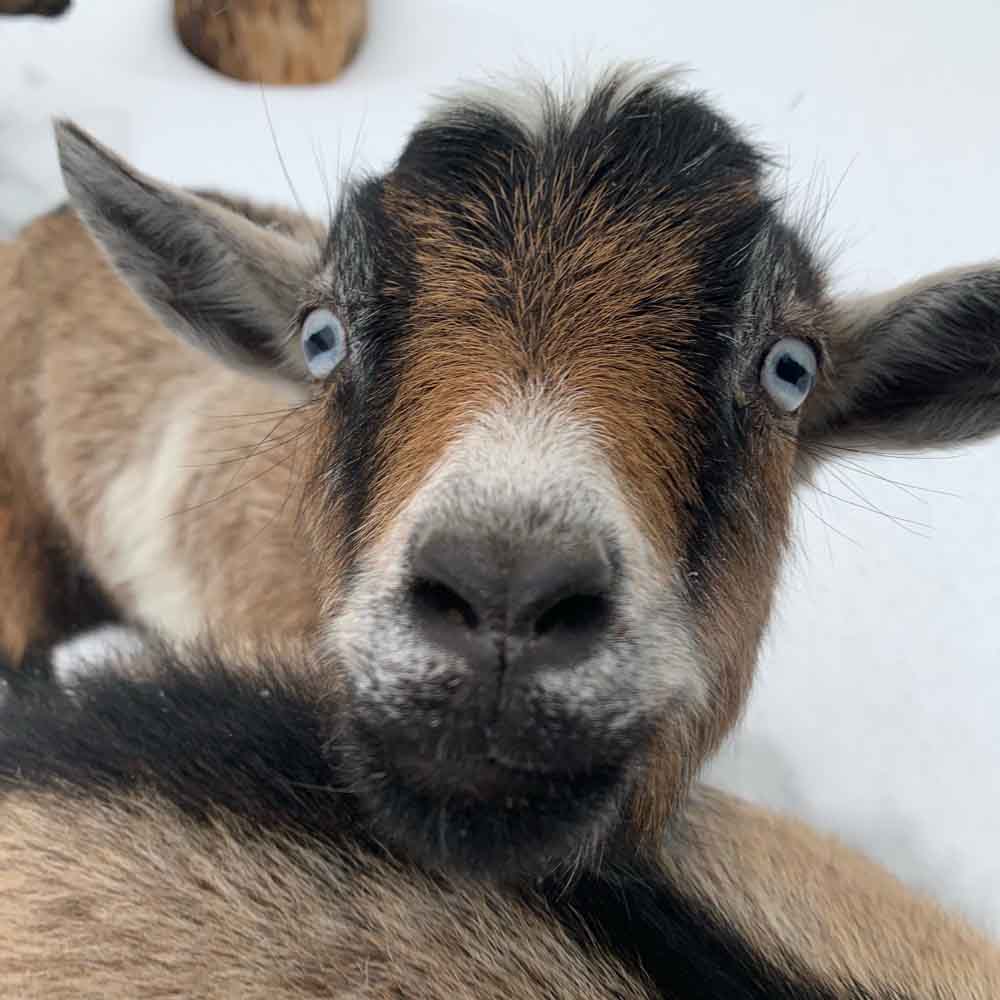
Our Goats
The Lachat Town Farm goats are Nigerian Dwarf goats. Nigerians dwarf goats are of West African origin and are raised as dairy goats and companion animals. Our three goats are wethers, or castrated males. Bob, Clover, and Vindaloo were born in the spring of 2020 at Guardians Farm in Southbury. If you are interested in volunteering to care for the goats and becoming a Goat Ambassador, please contact us at volunteer@lachattownfarm.org
Our Bunnies
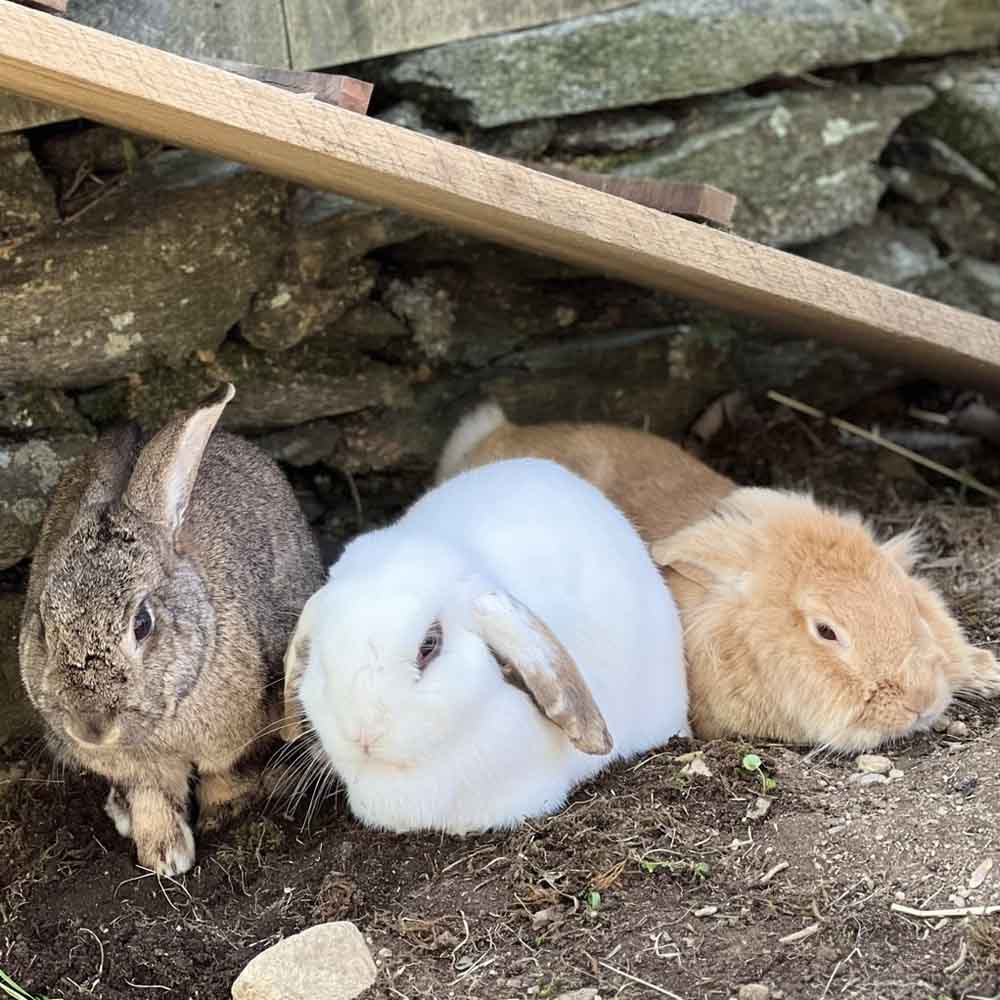
Our Bunnies
Stop by our newly built Bunny Manor House here at Lachat Town Farm to visit our six resident bunnies. They can be found living in the back part of our historic barn, in what used to be the old milking room. If the day is pretty, they can also be found happily hopping about in their outdoor run, nibbling away at the white clover. If you would like to volunteer time with the bunnies, please contact us at volunteer@lachattownfarm.org
Our Bees
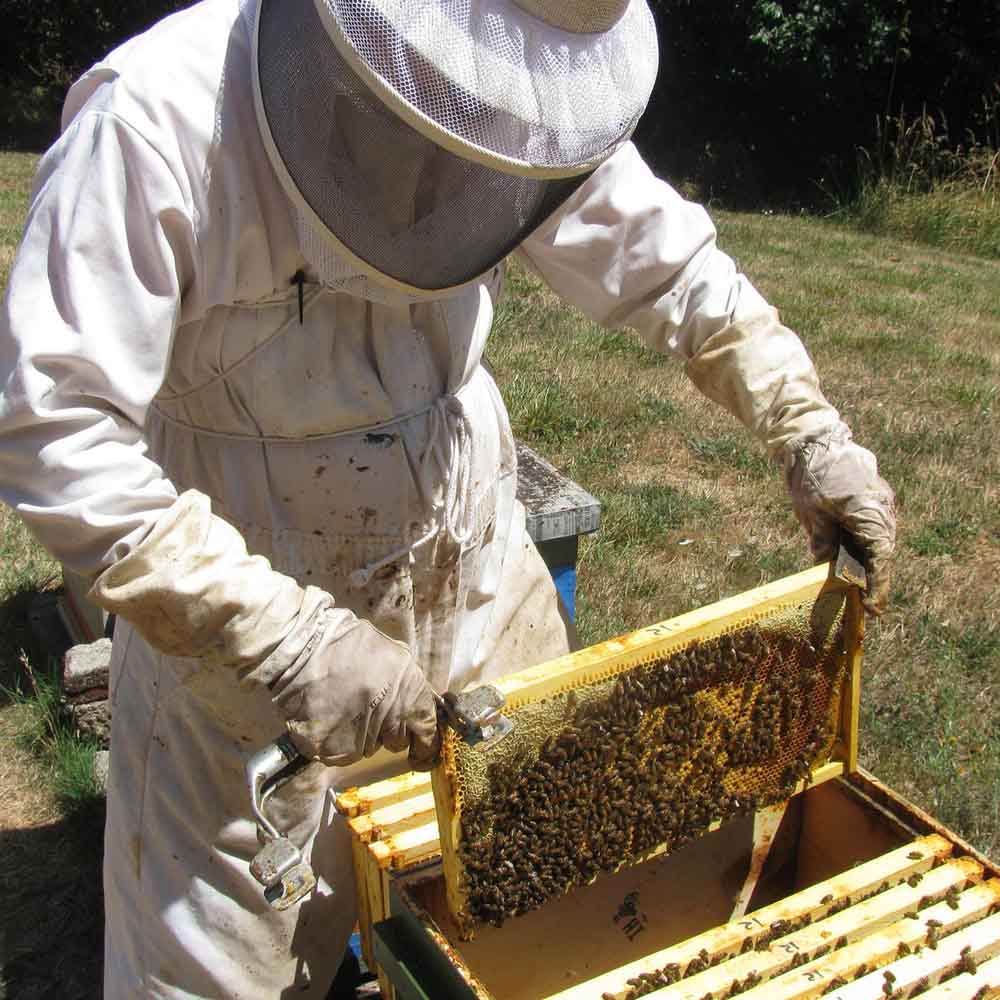
The Beeyard
The Lachat Town Farm Beeyard began in 2017 with 2 hives. In 2021 it expanded to 4 hives and is offering educational opportunities with the bees and about the bees. Honeybees are originally from Europe but are now kept worldwide for all the benefits they offer. Not only do they offer a window into a fascinating society, but they also provide us with honey, propolis, beeswax, pollen, royal jelly, bee venom, and pollination services.
The Beeyard is supported by donations and grants. If you would like to help support the beeyard, consider making a donation or purchasing a set of notecards. All notecard photos were taken at the farm and proceeds will go towards equipment for the bees and educational opportunities. Click here to purchase limited edition notecards.
Community Garden
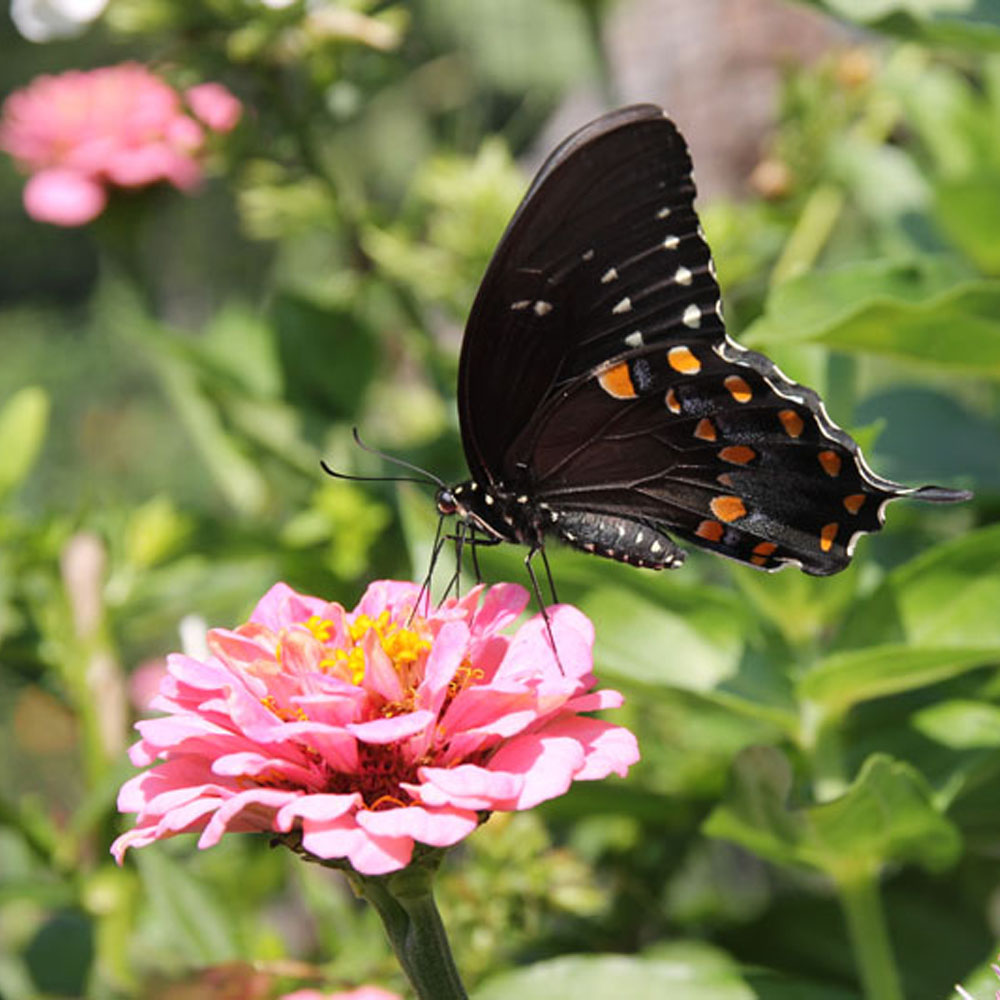
Commuunity Garden
The Lachat Town Farm Community Garden broke ground in May of 2014. Countless volunteers from the community came forward to help, including; Wells Hill Farm, Weston Kiwanis, Builders Beyond Borders, Green Village Initiatives, Weston High School Senior Interns, and Lachat Oversight Committee members. They built wooden boxes for the raised-beds, painstakingly aligned the beds in position, cleared rocks, pulled weeds, put up cedar posts with perimeter deer fencing, and filled the new beds with organic garden soil. After a general cleanup, the beautiful community garden was created, a month after the work started.
Originally, the garden had 42 raised beds of various sizes to rent. With increasing requests for beds, that number has increased to 50 with an additional 4 beds that grow produce for the farm.
Gardeners, and non-gardeners alike, enjoy the beautiful Pollinator Pathway flower beds surrounding the garden, and you will often see folks enjoying a sunny day in the central piazza. With full sun, which is hard to come by in Weston, tomatoes are a favorite crop of the community gardeners.
If you are a Weston resident interested in renting a bed, please contact the Garden Managers.
Community Gardeners please click here to visit our Garden Member page.
Giving Garden
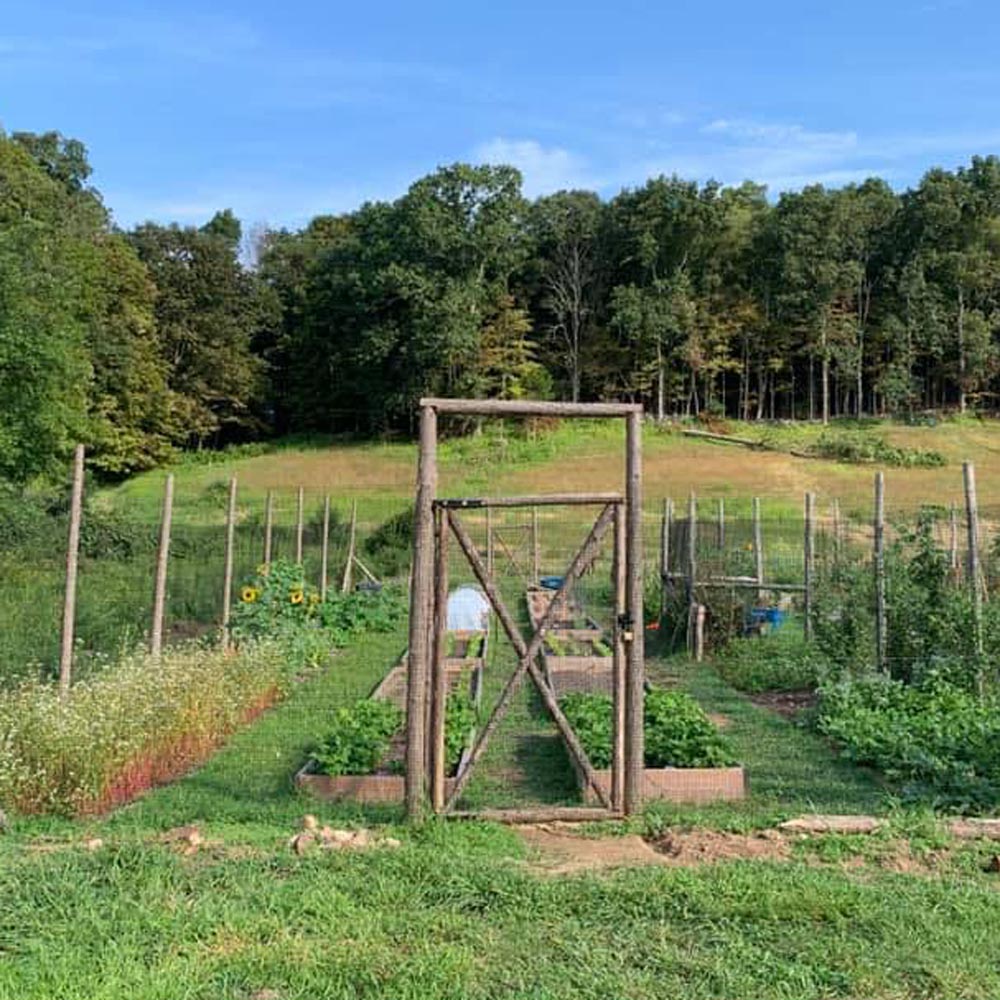
Giving Garden
The Lachat Giving Garden in Weston, CT is a place where volunteers come together to grow organic fruit and vegetables for neighbors facing food insecurity. The idea to grow produce for the Weston Food Pantry was hatched by a Lachat Town Farm volunteer. At the start of the 2020 pandemic, more volunteers came together and secured grants to build the Giving Garden. Thanks to Sustainable CT, Whole Foods, the New England Grassroots Environment Fund, the Weston Progress Fund, and many donations from Weston residents, volunteers were able to build a garden with over 1700 sq feet of active growing space. On June 25th, the first bean cotyledon popped out of the soil, giving the over 40 volunteers hope in uncertain times.
In the first year, the Giving Garden donated thousands of pounds of produce and eggs, feeding local families nutrient dense food for over 18 weeks. The garden is entirely run by volunteers, some even donating farm fresh eggs to supplement the vegetables and fruit. Thanks to donations and Yeti for supplying coolers, eggs are now stocked each week in the pantry along with vegetables.
In an effort to support local farms and supply more produce, funds were raised to shop farm stands weekly. Local farms in Weston are also very generous, often adding donations of their own.
We are always looking for more people to volunteer in the Giving Garden to help grow to give. Please join us.
Pollinator Garden
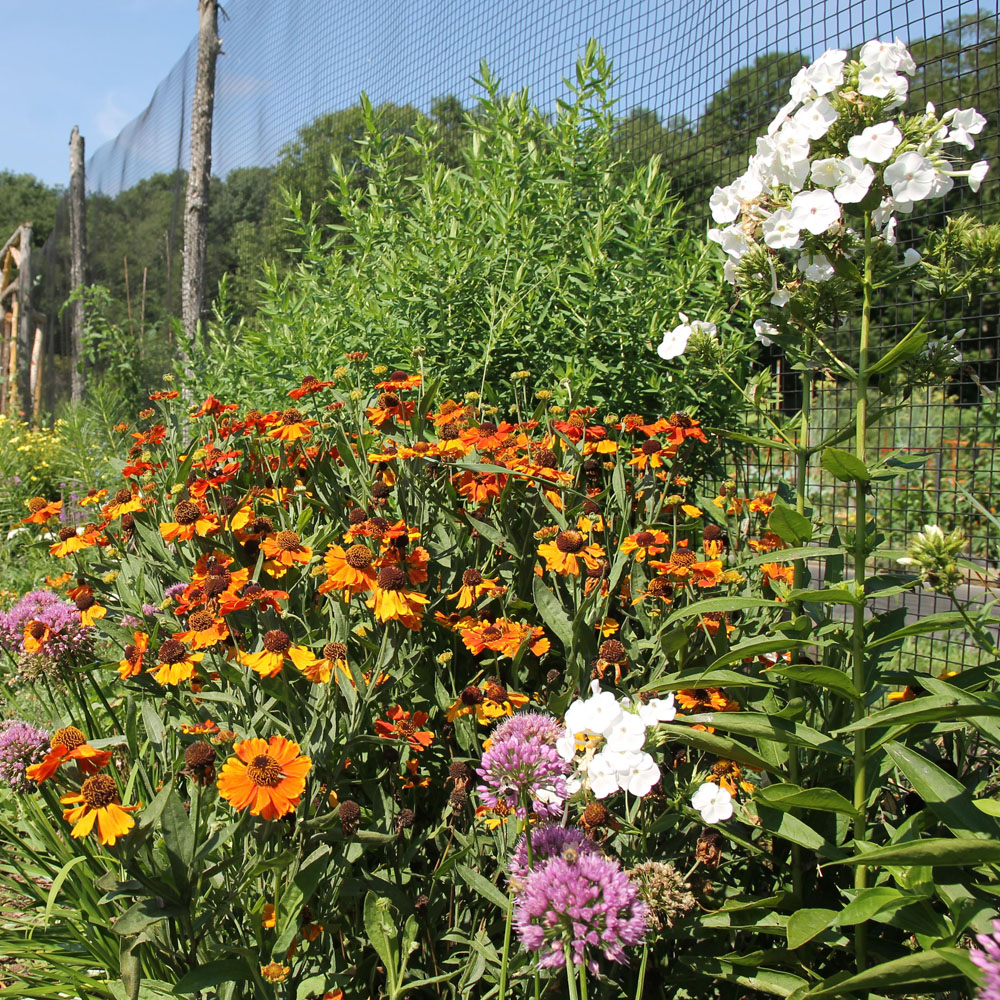
Pollinator Garden
Lachat Town Farm strives to support the ecosystem, starting with our tiniest insects and birds, which form the basis of the food chain. Our pollinator garden surrounds the Community Garden, providing more than just a stunning backdrop - these native and pollinator friendly plants are critical to a multitude of species. The pollinator garden provides a place for native butterflies to lay eggs, a food source for birds who feed on caterpillars and seeds, and nectar for the honeybees who call our Beeyard home,. The pollinators that are attracted will also go on to pollinate the fruits and vegetables growing in the Community and Giving Gardens, providing food for humans as well. It's nature at its best, and Lachat is proud to play our part in being stewards of our precious land. For more information, please visit the Weston Pollinator Pathway.
